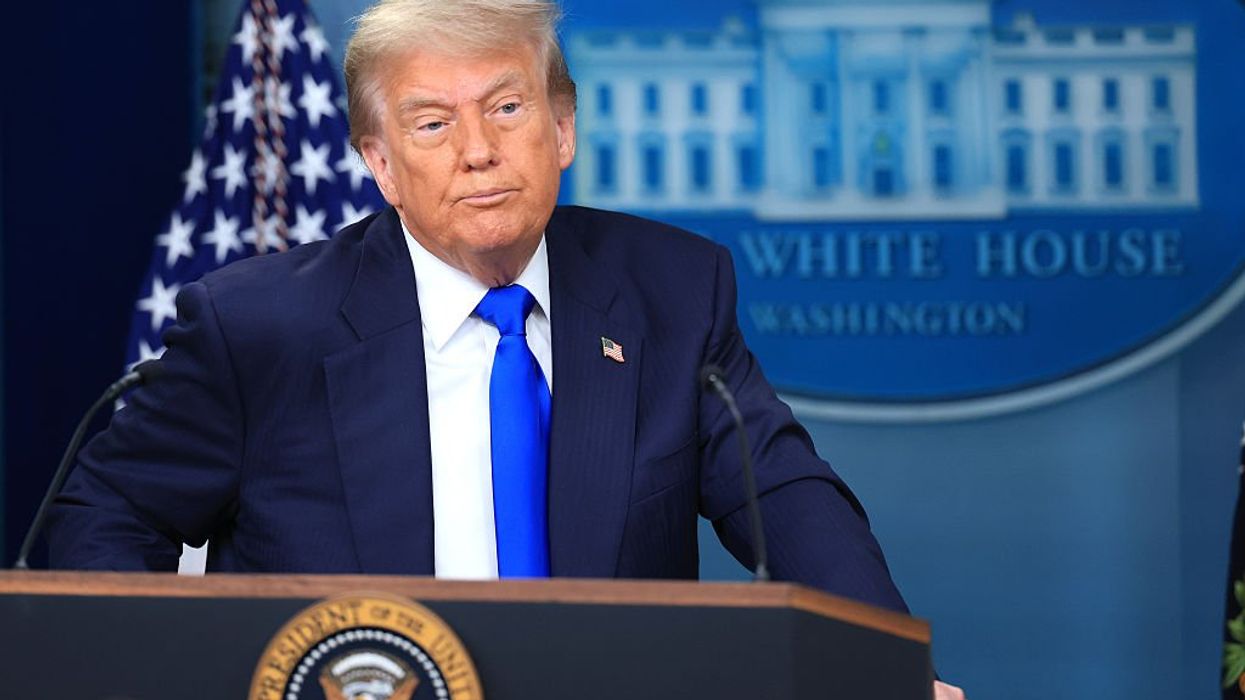
© 2025 Blaze Media LLC. All rights reserved.
Meet the Mormon Presidential Candidate in Mali Who Has a Bold Plan for Combatting Islamic Extremism
February 08, 2013
"Democratic principals bring a country from poverty to abundance."
 Mali presidential candidate Yeah Samake (Photo Credit: Samake2012.com)
Mali presidential candidate Yeah Samake (Photo Credit: Samake2012.com)
Mali has been a hotbed of Islamic extremism of late, as alQaeda operatives have taken the West African nation by storm. As the country deals with an influx of violence, a presidential election is slated for this year -- and there's a fascinating candidate running for office. Yeah Samake, 42, a Mormon who was born and raised in Mali, is hoping to win the presidency and to save his homeland from the grips of extremism.
Samake is currently one of the top candidates in the race -- a democratic election that was pushed off last year after extremist activity caused delays. Receiving an education in the West, the candidate attended Brigham Young University and has a unique perspective about how to save his nation from the cusp of disaster.
At a speech this week at Sand Creek Middle school in Ammon, Idaho, Samake told students about life in Mali and shared his personal story. One of 18 children, he lived in extreme poverty, however he credited his father with teaching him the importance of education. After receiving his bachelor's degree in Mali, he went on for a master's at Brigham Young.
As far as governance goes, the candidate believes that true democracy is the key to Mali's success.
"Democratic principals bring a country from poverty to abundance," he told the students. "Local leaders are the main actors in the development process. We have to make sure how to empower local leadership."
And Samake would know a little bit about how these principles are put into action. After his time at the Mormon university, he went back to his country and settled in Ouelessebougou, the municipality he was raised in. Today, he is a mayor there, managing 44 villages with openness and transparency.
 Photo Courtesy of Cole Nielsen
Photo Courtesy of Cole Nielsen
Here's just a portion of recent plans that he outlined in a recent op-ed:
The recipe for restoring and maintaining a democratic Mali requires holding elections, the return of Malian administration and army in the north, political stability and accountability, and the homecoming of displaced Malians. The way forward in Mali will begin with a Sovereign National Conference similar to that of 1991. This national dialogue will put in place the right political environment as a precursor to free and fair elections. Malians have a tradition of picking leaders through electoral processes, not by consensus, even when the outcome is less than perfect. When the country is unified, the authority of the state will need to be strengthened to allow cohabitation with decentralized local governance.We must also consider the humanitarian situation. Humanitarian efforts should be balanced with the need for displaced Malians to return to their homes. They have been driven to camps because they do not want to live under Shariah law. After a successful military intervention, it is important politically that they become part of the solution by returning to their residences. Humanitarian assistance must be balanced in this regard.
Learn more about his life story in a campaign video, below:
The candidate is purportedly a member of the only Mormon family in Mali -- something that certainly sets him apart from others seeking office. According to KIDK-TV, Samake doesn't use his faith to progress his political career, however he has implemented a system in the political schema that will be familiar to members of The Church of Jesus Christ of Latter-Day Saints.
"I implemented something that Mormons will relate to, the elder's quorum," he explained. "It is unique to my city to make sure that communication flows well that accountability exists."
The official LDS web site explains the elder's quorum in detail:
The elders quorum president serves under the direction of the district or mission president and is accountable to him. The quorum president works also under the direction of the branch president as a member of the branch priesthood executive committee and as a member of the branch council. The quorum president presides over quorum members in the branch and sets an example for them. He works with the branch president to organize and administer home teaching to ensure that the Church remains in active contact with all branch members.The quorum president teaches quorum members the gospel and their Melchizedek Priesthood duties (see D&C 107:89). He encourages them to serve with joy and humility, especially in their responsibilities as husbands and fathers. He teaches them how to perform priesthood ordinances, and plans service projects and activities that assist members and build quorum brotherhood. He is responsible for the spiritual and temporal well-being of quorum members.
The elders quorum president assigns home teachers who hold the Melchizedek Priesthood and adults (19 and older) who hold the Aaronic Priesthood, and with the approval of the branch president, he assigns young men as home teachers who are teachers and priests in the Aaronic Priesthood. Home teachers are assigned in companionships of two during private interviews. As approved by the branch president, the elders quorum president may assign the wife of a man who holds the Melchizedek Priesthood to accompany her husband on visits where a couple is specifically needed.
Translating this into a government context, it would seem that Samake is intent on keeping communications between key players moving seamlessly. And, as he mentioned, accountability and an assurance that politicians are doing what's expected of them were likely key goals in setting up this framework.
Samake also spoke about the "Mali moment," noting that it is time for the country to change. In making this appeal, he affirms that he's the man for the job. Having experienced success at the local level in implementing transparency measures, the candidate is hoping to have similar successes at a national level, a feat that, considering recent events surrounding extremism, won't be easy.
For more about the candidate's plans for Mali, read a recent op-ed he wrote for The Washington Times.
(H/T: KIDK-TV)
Carousel photo: ColeNielsen
--
Related:
Want to leave a tip?
We answer to you. Help keep our content free of advertisers and big tech censorship by leaving a tip today.
Want to join the conversation?
Already a subscriber?
Billy Hallowell is a digital TV host and interviewer for Faithwire and CBN News and the co-host of CBN’s "Quick Start Podcast."
Billy Hallowell
Billy Hallowell is a digital TV host and interviewer for Faithwire and CBN News and the co-host of CBN’s "Quick Start Podcast."
more stories
Sign up for the Blaze newsletter
By signing up, you agree to our Privacy Policy and Terms of Use, and agree to receive content that may sometimes include advertisements. You may opt out at any time.
Related Content
© 2025 Blaze Media LLC. All rights reserved.
Get the stories that matter most delivered directly to your inbox.
By signing up, you agree to our Privacy Policy and Terms of Use, and agree to receive content that may sometimes include advertisements. You may opt out at any time.





